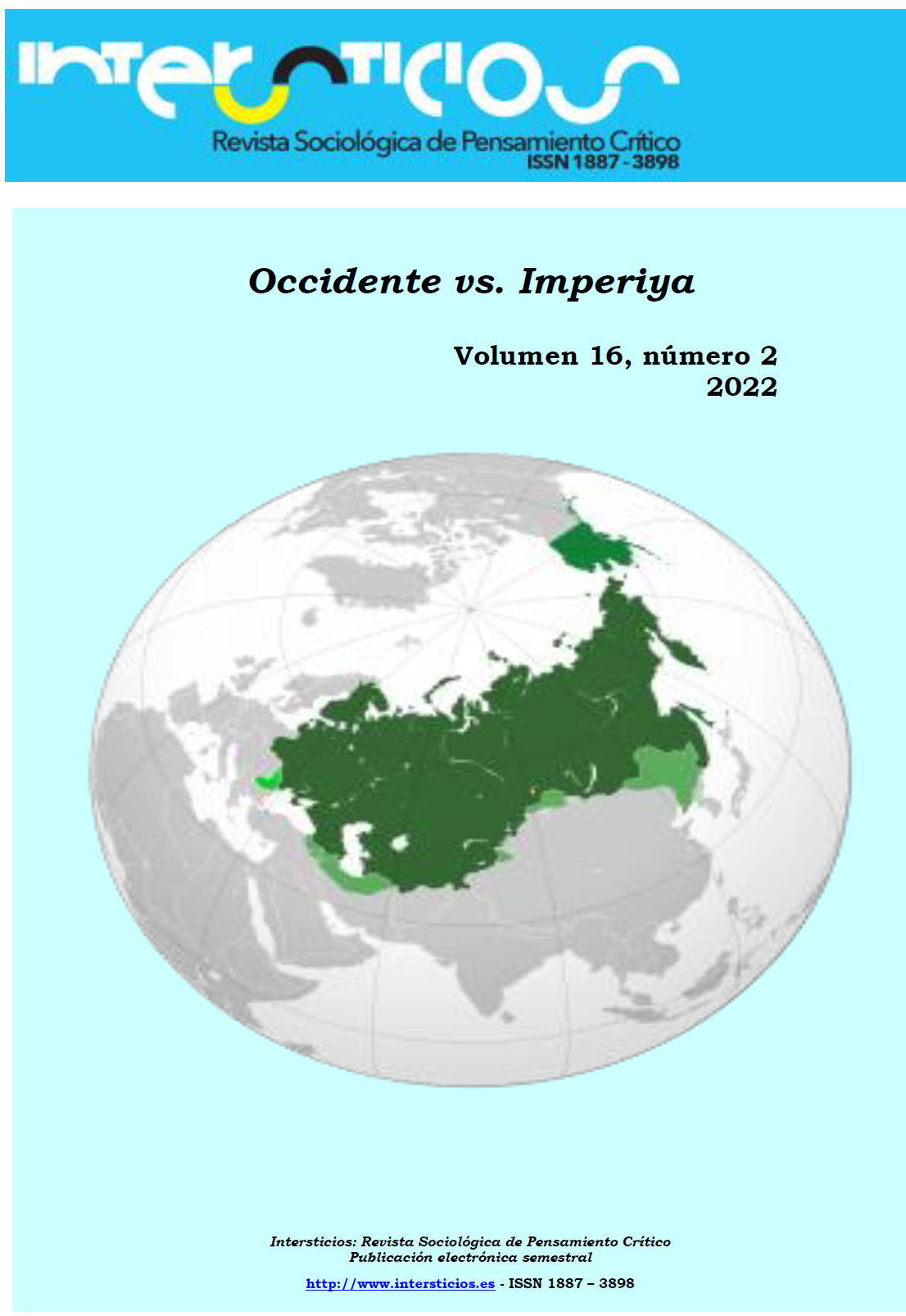Towards a sociological critique of contemporary political correctness
Keywords:
Political Correcness, Identy Politics, Emancipation, Universalism, Cancellation culture.Abstract
This article critically examines the contemporary problem of political correctness. His central thesis is the following: the centrality of the discussion on political correctness is a result of the institutionalization of the demands raised by the labor, feminist, lgbtiq and anti-racist movements in the second half of the 20th century. The scope of these struggles today has been reduced to the symbolic and the formal, leaving intact the socioeconomic and political structures on which inequity and injustice are based. For this reason, dogmatic positions of rejection or unrestricted defense of political correctness can only be overcome by radicalizing emancipatory policies, making them once again dysfunctional in at least two ways. First, articulating the dispute over the symbolic and the formal with transformative actions in the socioeconomic and political fields. Second, taking up universalist emancipatory projects.
References
Bourdieu, P. (1991): La distinción. Criterio y bases sociales del gusto, Madrid, Taurus.
Duda, R. (2019): La verdad de la tribu. La corrección política y sus enemigos, Barcelona, Debate.
Escobar, A.; Álvarez, S. y E. Dagnino (2001): “Introducción. Lo cultural y lo político en los movimientos sociales latinoamericanos”, en Política cultural y cultura política. Una nueva mirada sobre los movimientos sociales latinoamericanos, Bogotá, Taurus-Icanh, pp. 17-48.
Faser, N. (2019): ¡Contrahegemonía ya! Por un populismo progresista que enfrente el neoliberalismo, Buenos Aires, Siglo XXI.
Forti, S. (2021) Extrema derecha 2.0. ¿Qué es y cómo combatirla?, Madrid, Siglo XXI.
Foucault, M. (2000): Vigilar y castigar, Buenos Aires, Siglo XXI.
Koselleck, R. “Introducción al Diccionario histórico de conceptos político-sociales básicos en lengua alemana”, Revista Anthropos, n.° 223, pp. 92-105.
Koselleck, R. (2012): Historias de conceptos. Estudios sobre semántica y pragmática del lenguaje político y social, Madrid, Trotta.
Laclau, E. y Ch. Mouffe (1987): Hegemonía y estrategia socialista. Hacia una radicalización de la democracia, Madrid, Siglo XXI.
Le Bon, G. (1952): Psicología de las multitudes, Buenos Aires, Albatros, 1952.
Lourau, R. (2008): El Estado inconsciente, La Plata, Caronte.
Murray, D. (2020): La masa enfurecida. Cómo las políticas de la identidad llevaron al mundo a la locura, Barcelona, Península.
Pastoureau, M. (2006): Una historia simbólica de la Edad Media occidental, Buenos Aires, Katz.
Rougemont, D. (1979): El amor y occidente, Barcelona, Kairós.
Stefanoni, P. (2021): ¿La rebeldía se volvió de derecha?, Buenos Aires, Siglo XXI.
Tilly Ch. y Wood L. (2008): Los movimientos sociales 1778-2008. De sus orígenes a Facebook, Barcelona, Crítica.
Villanueva, D. (2021): Morderse la lengua. Corrección política y posverdad, Barcelona, Planeta.
Virno, P. (2004): Cuando el verbo se hace carne, Buenos Aires, Tinta Limón.
Wagensberg, J. (2007): El gozo intelectual. Teoría y práctica sobre la inteligibilidad y la belleza, Barcelona, Tusquets.
Downloads
Published
Issue
Section
License
Copyright (c) 2022 Edwin Cruz Rodríguez

This work is licensed under a Creative Commons Attribution 4.0 International License.
p class="TEXTO-izquierda">Authors maintain the @copyright, giving to the journal the right of first editio.








